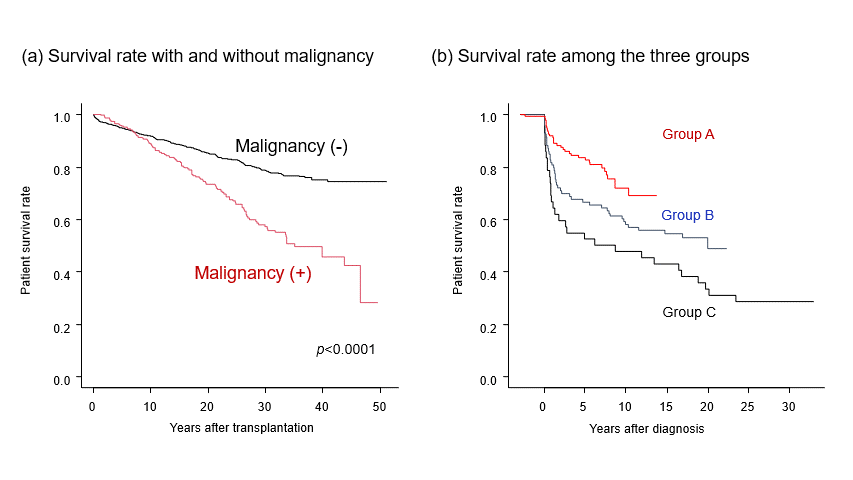Improved prognosis in renal transplant recipients by cancer screening
Yoichi Kakuta1, Soichi Matsumura1, Shota Fukae1, Ryo Tanaka1, Hiroaki Yonishi2, Shigeaki Nakazawa1, Kazuaki Nakazawa1, Yoshitaka Isaka2, Norio Nonomura1.
1Urology, Osaka University Graduate School of Medicine, Suita, Osaka, Japan; 2Nephrology, Osaka University Graduate School of Medicine, Suita, Osaka, Japan
Introduction: Renal transplant recipients are at increased risk for developing cancers, and cancer after transplantation is one of the most important prognostic factors. However, the effectiveness of cancer screening in improving prognosis of renal transplant recipients remains unclear. The benefits and harms of cancer screening in this population are still under investigation, and more evidence is needed to guide informed decision-making.
Methods: We examined the benefit of cancer screening in 2339 kidney transplant recipients in Osaka University Kidney Transplant Group. Cancer screening at our institute was started in 2000 and included PSA, urine cytology, fecal occult blood, abdominal ultrasonography, chest and abdominal CT, and Pap test, mammography, and gastroscopy. We divided the recipients who developed malignancy into three groups: Group A: recipients whose cancer were detected before 2000, Group B: recipients whose cancer was detected between 2000 and 2009, and Group C: recipients whose cancer was detected after 2010.
Results: Of 2339 recipients, 289 developed malignancies, with a cumulative incidence of approximately 40% over the 40 years after kidney transplantation. Recipients who developed malignancy had significantly lower long-term survival rate than those who did not (p<0.0001). Risk factors for the development of malignancy included age of recipients, duration of dialysis, hypertension, and antimetabolites in both univariate and multivariate analyses. The patient survival rate increased in the order of Group C, Group B, and Group A. There was also an improvement in cancer-specific survival, which was attributed to an increase in the proportion of cancers detected early by cancer screening.
Conclusion: This study found that cancer screening improved the prognosis of renal transplant recipients. However, this study did not examine the cost of medical care, and further study is needed.

[1] de novo malignancy
[2] cancer screening
[3] patient survival
[4] cancer-specific survival
[5] recipients
[6] kidney transplantation
